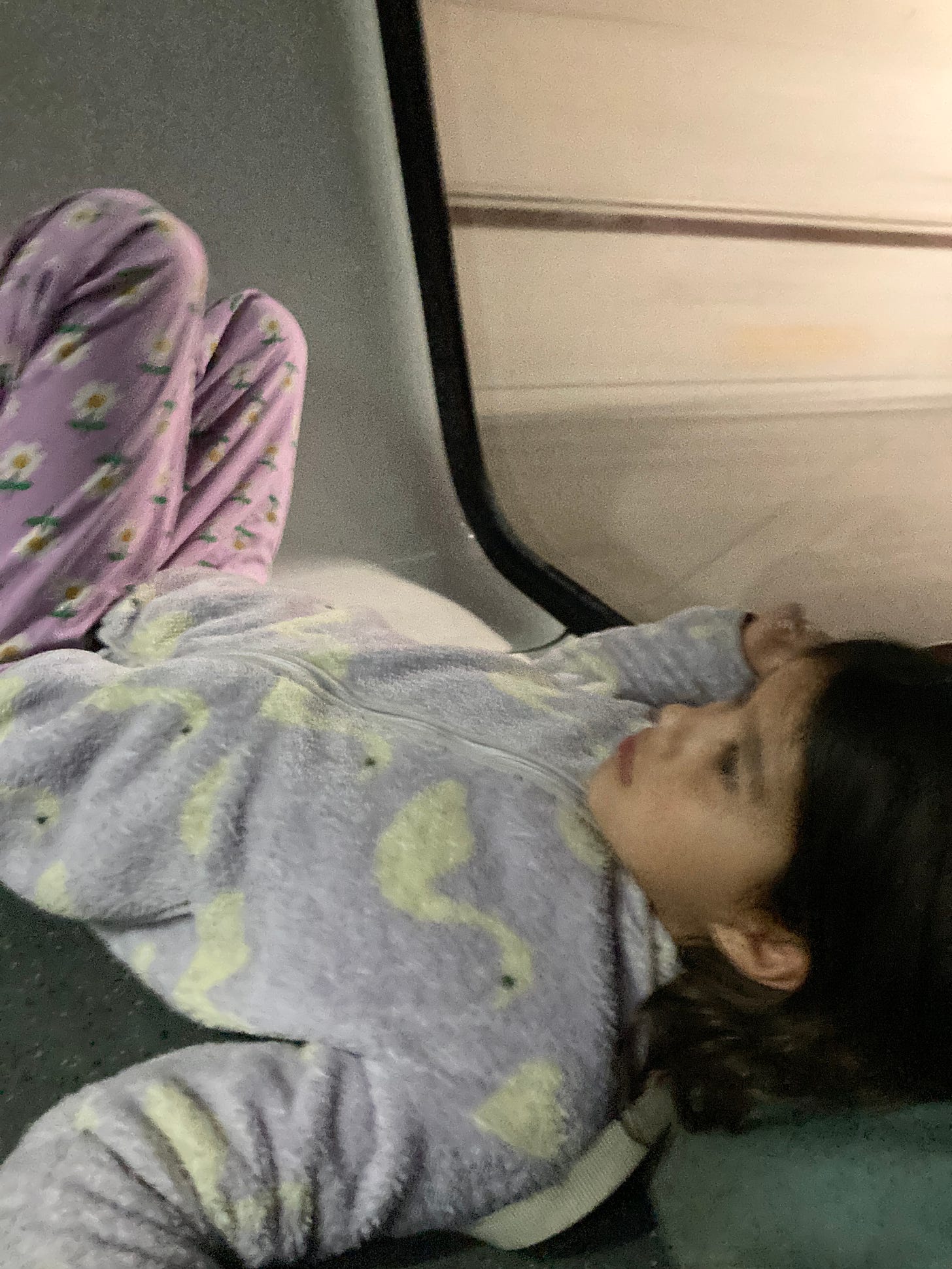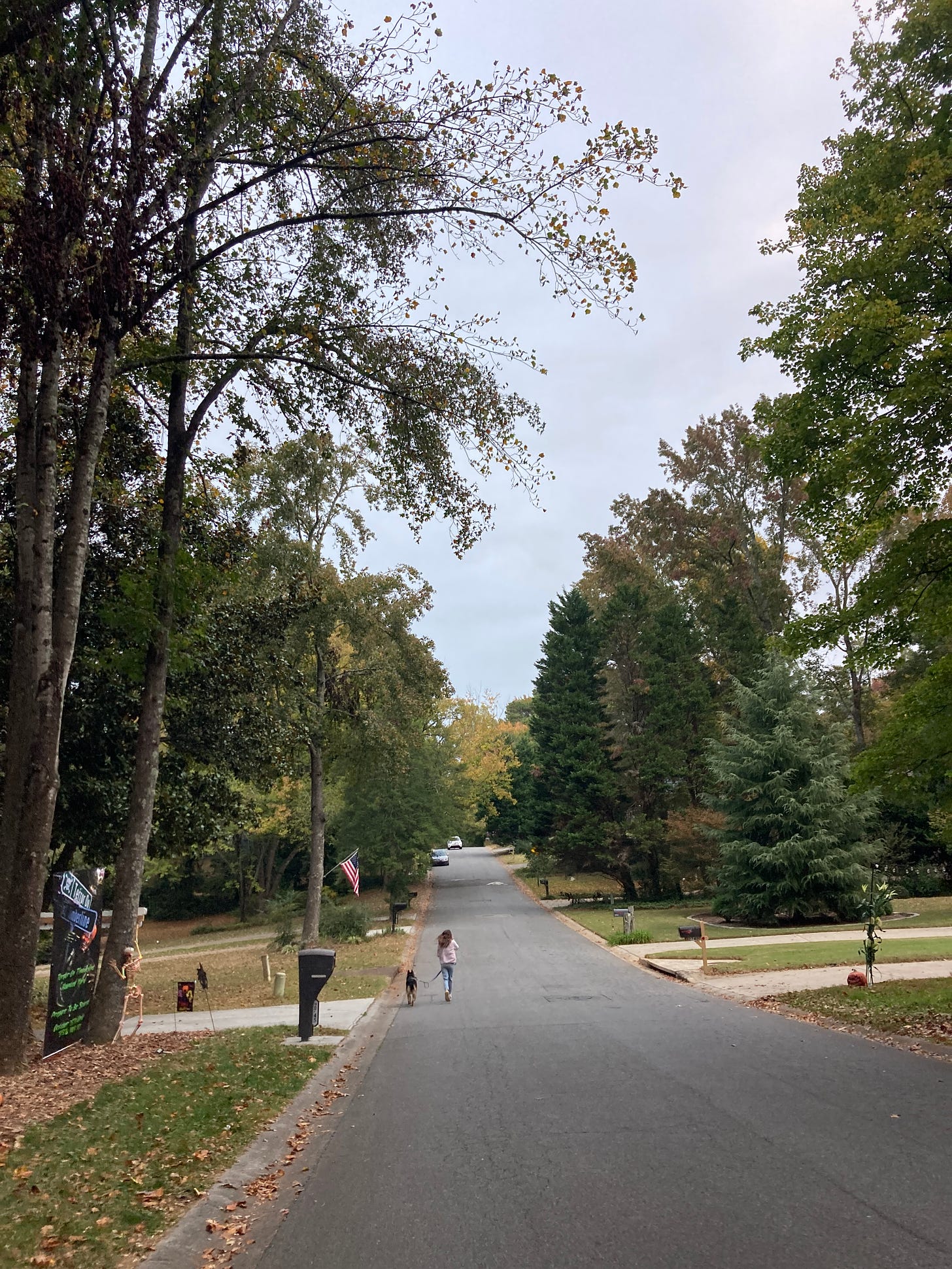Why we need the humanities more than ever
Trying to explain to a roomful of college students why data analytics is not the answer!

Hello folks! Terms of endearment is ONE PAID SUBSCRIBER away from a “Bestseller” badge! Do you love what you read here? Find it unique? Support this work today.
For my seminar this week, I asked my students to read Nathan Heller’s “The End of the English Major.”
Heller’s main arguments are that as many universities have democratized and millions of lower-income, immigrant, and first-generation students are now attending college, students feel a pressing need for a stable career right after graduation, and they don’t see a path there in the humanities.
College has also gotten infinitely more expensive for everyone, and it’s difficult for many students to justify dropping $100,000 to consider the construction of gender in the early Victorian novel.
Then there are the obvious cataclysmic shifts we’ve all felt: the rise of AI and big tech and the exorbitant amounts of money dumped into them, lending a halo of status and prestige; the direct donations of people like Mark Zuckerberg to institutions like Harvard; the smart phone, which has made “assigning ‘Middlemarch’…like trying to land a 747 on a small rural airstrip”; the fact that students can easily gather from the culture at large that there is very little value in writing/reading/thinking deeply, but a lot of it in creating a little widget that asks you to differentiate between a giraffe and a lamppost and sells for 2 billion dollars!
I don’t disagree with any of these points, though I think Heller does not dig deeply enough into their underpinning. Yes, lower-income and first-generation students are less likely to major in Film, Gender, and Representation because their parents might murder them, but my mostly upper-middle-class white students – many of them from the wealthy suburbs of Philadelphia or around the East Coast – are just as reluctant to stray too far from the glass-walled promise of the business school.
It’s in part because the social-economic-cultural value of the humanities has diminished, but it’s also because capitalism has become so utterly voracious that even my well-off students worry about making enough money, obsessing about an imagined future scarcity and debt even as they describe themselves as privileged.
They have spent most of their young lives striving towards status goalposts (the hardest AP; the elite sports team; the looks-good-on-the-resume volunteer gig) without really asking why, and most have never really been exposed to the notion of “doing what one loves” as a life goal, or even to the notion of meaning itself as something to ponder.
As William Deresiewicz writes in Excellent Sheep, his critique of higher education: “Nothing in their training has endowed [students] with the sense that something larger is at stake. They’ve learned to ‘be a student,’ not to use their minds.”
During class, I divided my students into two groups: one had to argue for getting rid of the humanities, and one had to defend them. Each had to marshal quotes, anecdotes, and evidence from Heller to make their arguments. A panel of student judges would choose the winning team, who would be awarded my child’s leftover Halloween candy.
Normally, these kind of debates fire students up and create the kind of classroom that would warm the heart of even the hardest humanities-hater: passionate arguing back and forth, brilliant insights had in real time, students deeply engaged with the sheer joy of learning, young minds at work!
Alas. My students had just come back from fall break and the energy was Sunday-morning-hangover low. During the fifteen-minute planning period, you’d have thought I’d asked them to do each other’s taxes. Talk to each other, I kept saying. When you have to say that, you know it’s bad. But I held out hope that once they got into it they’d be swept along by the fervor and vital intensity of imagining our future society!
Not so much. Essentially, the anti-humanities side just annihilated its opponent. I had even stocked the latter with a few more students, including some heavy hitters, anticipating its disadvantage. But it wasn’t even close. The anti-humanities side would just say, “But humanities majors will never find jobs,” and then someone from the pro-humanities side would, in their rebuttal, meekly whimper, “Yeah. I agree with you, dude.”
This dragged on for an excruciating twenty minutes before I finally called it off.
“Stop, make it stop,” I said. And then I had my Dead Poets Society moment of the semester. I could not help myself. I could not be the kindly detached teacher leading the gentle students towards the light, helping them through the guiding power of their own innate intelligence to grapple with powerful truths.
“Are you kidding me?!” I shouted. “I mean seriously! Are you kidding me? Have any of you ever watched Netflix?” The fact that this was my first light-bulb instinct for defending the humanities is probably a sign of doom, but I had to meet them where they were.
“Raise your hands if you watch Netflix!” Everyone raised their hand.
“That was not written by a marketing major!” I shouted. Though, reflecting afterwards, I realized this actually might not be true for approximately 85% of Netflix content. Still. I was trying. Hard.
“Do you listen to music? Do you enjoy movies? Do you listen to podcasts? Do you like thinking?” Some of them laughed. Others looked alarmed.
“Could you imagine if the whole world was just people trying to sell leggings and conducting scientific research? I mean, if everybody majored in economics and organic chemistry, what would you do for fun? What would you care about or think about? Or would we all just read AI-generated web sites all day? Do you want everything you read or listen to or watch to be made by a bot? Is this the world we want to live in?”
And then my students leapt from their desks and shouted, No, no, Professor Menkedick, no it’s not! Tomorrow we’re leaving Econ 101 and signing up for Latin American History and Eco-Philosophy of the Capitalist World! Fear not, Professor!
One of my strongest students raised her hand. “I’m actually majoring in the humanities,” she said, “But it scares me.”
“Listen,” I said, “let’s talk about money, okay? What does our society give money to? Where do we put most of our money? Big oil, big tobacco, now big tech. Where the money goes is not where the soul is. It’s not where your heart is. It doesn’t mean the work that doesn’t make as much money is not valuable. It means it’s not valued. So you have to actively make the choice to change that.”
I was talking, really, to myself. Who was I, at 42 years old, making a barely livable salary in a dying industry, constantly fearful about money and constantly hanging on by a thread even after what would be seen as considerable mainstream success, to stand up under the fluorescent lights of Room 203 and declare Humanities Will Save The World?
Who was I to discourage them from opting for speech language pathology instead of history because even though they loved the latter, they couldn’t imagine finding a job in it? Who was I to say, oh no, follow your heart, darling, it’ll guarantee you nothing?
What I did say to this lovely student, the one who offered up that she was not majoring in history, was: “It’s a failure of the humanities not to show you the meaning of majoring in history, and the possibilities it offers.”
This is true, but what I should have said is what occurred to me afterwards: it’s a profound failure of our society that even as we are cresting an unprecedented moral, ecological, and democratic crisis, we place so little value on art, history, philosophy, critical inquiry, media literacy, narrative, storytelling, community, the search for meaning, that even those who are supposed to be the most idealistic and wild – young people! – feel compelled to choose the glossy deadness of tech.
I made a few more valiant arguments, with all the fervor of a street preacher pacing and raving while the kindly well-meaning passerby swerve around her.
Our democracy is dying, I said, we are all in our own information siloes produced by tech companies that have no interest in human values but only clicks, clicks, clicks, and money; no one reads (I asked them how many read and, ladies and gentlemen of the jury, 3 out of 19 students raised their hands); you all say we need to solve climate change with STEM but how is anyone going to solve climate if they have no love for the natural world? If they’ve never even taken the time to watch a bird?
I don’t usually engage in epic moral soliloquies during class. But part of my reimagining of pedagogy this semester is showing up less as the quintessential All-Knowing, Walled-Off Teacher and more as a human being.
Paulo Freire criticizes the traditional teacher as a kind of empty figurehead narrating a static reality: “The Native Americans lived in the United States before the European settlers came. The settlers brought horses and guns and diseases. The buffalo were hunted to extinction.” The teacher has no life, no past, no future, no identity. There is no relationship with students beyond the transactional.
So part of radicalizing the classroom is showing up as a person. I’m not neutral! This is my life we’re talking about: the life of a history major, the life of a writer, the life of someone who sees this vitality slipping out of our country.
And of course this doesn’t mean my students can’t argue or disagree with me – I think almost all of them do – but they should see that someone cares. That it’s not all just –nothingness, which so much of school can feel like.
That’s what the humanities offers: meaning. Realness. Seeing the bird in front of you. Seeing the child in front of you. Feeling an October morning, feeling the shiver of your mortality, spotting the moon.
The essence that cannot be measured, bought, sold. The slippery, ethereal, emotional, earthbound, interconnected, purposeful; the gut-ache, the insight. The basis and beating heart of a life and a society: how does one love, how does one care, how does one tend to the collective good and oneself, what is good, what is meaningful, what is beautiful, why?
These, my friends, are the stakes! This is your one wild and precious life! And you wouldn’t even know to call it that, to feel that gut-punch, if it weren’t for Mary Oliver! She worked as a secretary and wrote poems for twenty years before winning the Pulitzer Prize in 1984. But as she told Krista Tippett of On Being, “I did find the entire world, in looking for something. I got saved by poetry, and I got saved by the beauty of the world.”
Said no one ever about majoring in data analytics.
What would Mary Oliver do today? Publish little vignettes on Instagram? Take a gig training AI to regurgitate nature metaphors?
I ran into one of my former students at a campus Starbucks the other day, where she was working as a barista. This student was so invested in the class and really thought about all the questions and assignments. She was a first-gen college student from rural PA. After the class, she wrote me to request her portfolio (I keep student portfolios on the final day for grading). She was really proud of it, she said. She thanked me for the class and said she loved writing.
“How are you!” I exclaimed, so happy to see her. “You must be a junior now! Are you still writing? What are you majoring in?”
“Oh,” she said, with her pretty shining eyes, her broad face still so childlike, “I decided to major in business. Because…you know.”
“Yeah,” I said. “I know.”
I get it, folks. I get it that no one is reading novels – or anything. I get it that our evil phones dominate our lives. I get it that I, often so profoundly ambivalent about my own lifelong entanglement with the humanities, and hardly a powerful role model of towering success (I might rotate between the same two “professional” button-downs each week???) am not exactly the hero the youth need to propel them out of finance and into modern dance.
But what have the humanities taught me?
If you love something, you commit. If you love it enough, if it matters enough, you do it anyway. You keep doing it because there is nothing else you can do. Because it feels vital, the soft animal of your body loving what it loves and all that, and despair and imagination and all the essential questions that come at night with a newborn: you get to live with them.
Now, with the way our society is going, you have to really love this harder than ever. You have to love what few other people do: animals, plants, the natural world, children, other humans, art, in spite of everything. You have to seek authentic sources of love and meaning, most of which don’t cost anything and don’t pay anything, and you have to do it even – especially – when no one else does.
The humanities will train you for that.
Normally this section is only for paid subscribers (love you, paid subscribers!) but I’m opening it up today because…Terms of endearment is only ONE PAID SUBSCRIBER away from earning a “Bestseller” badge on Substack!
Do you enjoy what you read here? Find it meaningful? Become a paid subscriber and make us a bestseller!
Hello friends! Special update for you all. Our flight to Atlanta was about to touch down and then dramatically veered back up into the sky and circled the city for an hour! Even my very travel-resistant child was about to throw up.
When we finally landed and sprinted approximately 50 miles through the Atlanta airport, we realized we’d missed our Mexico City flight by less than five minutes. They wouldn’t let us on even though it was sitting at the gate. Delta then proceeded to tell us all flights were full and they wouldn’t offer us another until 5 pm the following day! It was 8:39 in the morning!! This was fun.
Thankfully I have an aunt who lives outside Atlanta and she sent her son to pick us up. He took us back to her house where there were both Cocoa Puffs AND a German Shepherd named Lucky. Elena was delighted. We have been hanging out here with family for the last twenty-four hours, which has been lovely. We’ll head back to the insanity of the Atlanta airport this afternoon.

Feels strange here in the U.S. on the eve of such an important election. My aunt married a former monk and their house is full of religious iconography: gorgeous oil paintings of the Virgin Mary; wooden crosses; statues. They are deeply prayerful and compassionate people. I am trying to take this energy with me: solemnity, prayer, faith, compassion.
My uncle took my child to McDonald’s and when he returned, he mentioned to my aunt that he had “reverenced” the worker there. I love this term. “Reverenced” – a verb. I loved to hear it applied to the person serving my daughter chicken nuggets. What a way to approach our lives. “Reverenced.” In a better country, this is what we would do to one another, especially to the people – many of them immigrants – doing the hardest, least revered work.
I reverence you. I reverence you, reader. Love to you on this election eve.





Fantastic piece as always Sarah, leaving me with so much to think about. Sometimes I think that being an artist/writer is not just about having a life in the humanities, but being an advocate for the humanities. It really does feel like it is our responsibility to push against the status quo and to raise these questions. And while that feels like extra work, it also feels like essential work. Your students are lucky to have you!
This is really important and your students are lucky to have you. Your essay touches on what “success” means. We need economic stability but also meaning - one of many challenges is how to connect those two. I am a former humanities major (comparative religion and the history of science) who is grateful I had professors passionate about the value of religion to get at meaning and as you say deep love for something beyond ourselves. And parents who believed that being about to communicate and empathize was a critical part of education. I am now a doctor and I draw on my humanities background every day in working with patients and others caring for them. This essay raised a lot of ideas that I am struggling to respond to in a brief comment but I subscribed for more of this!